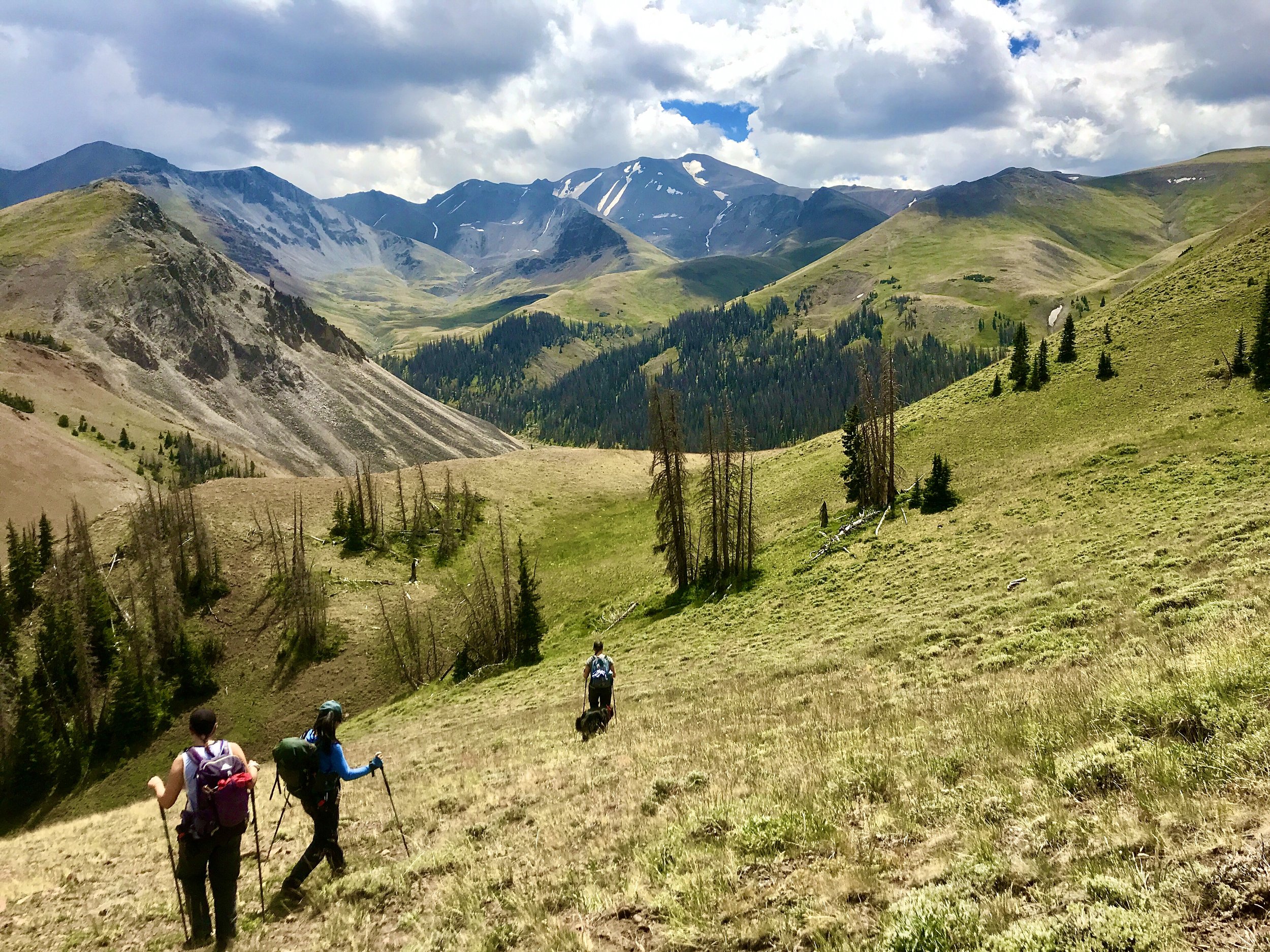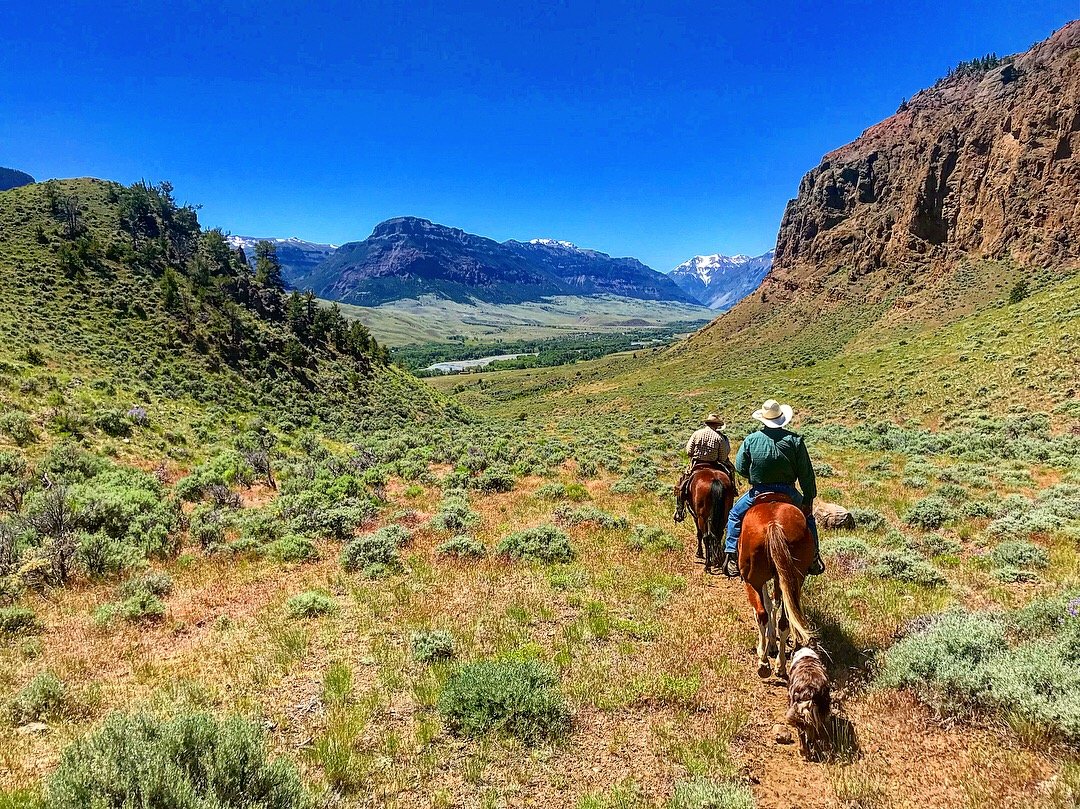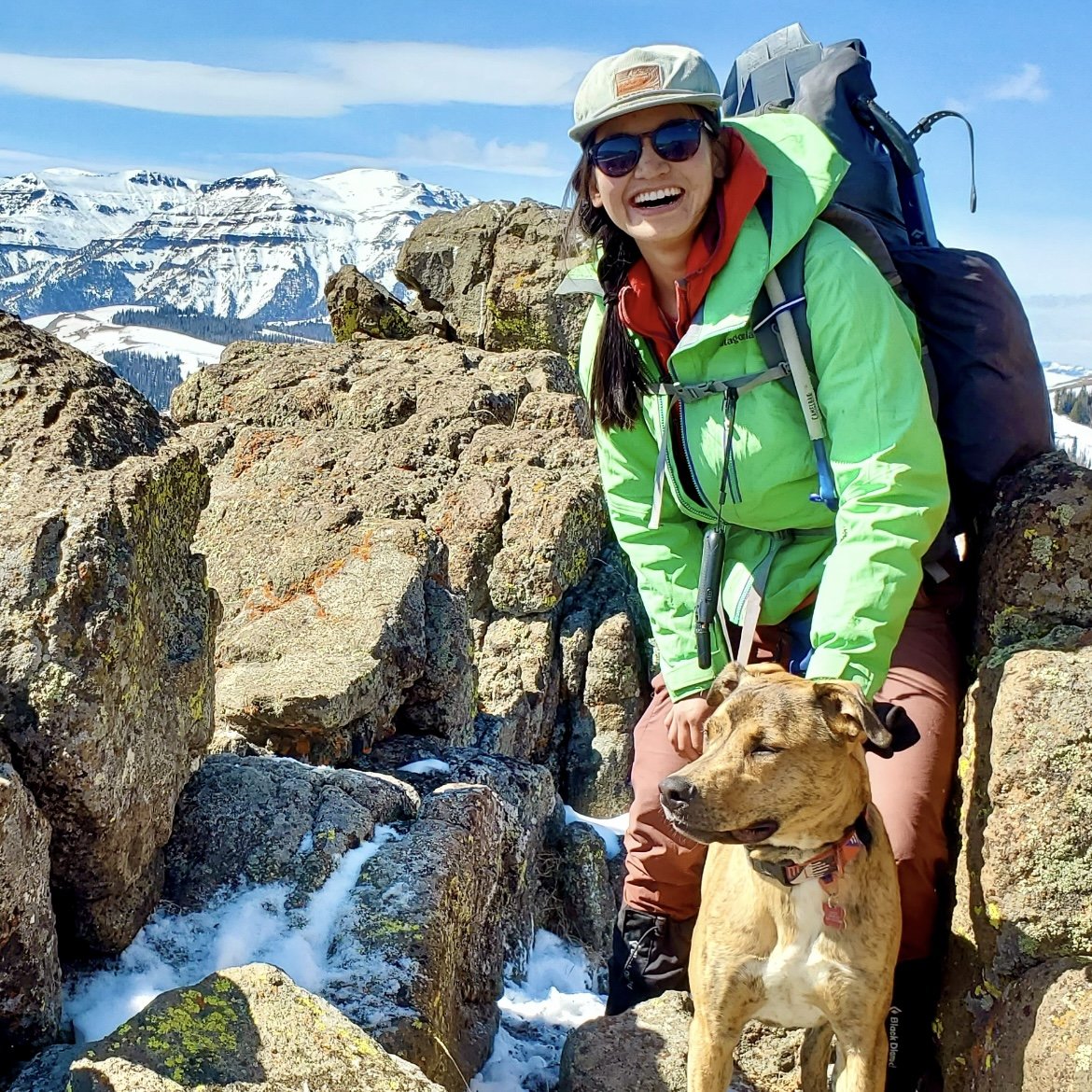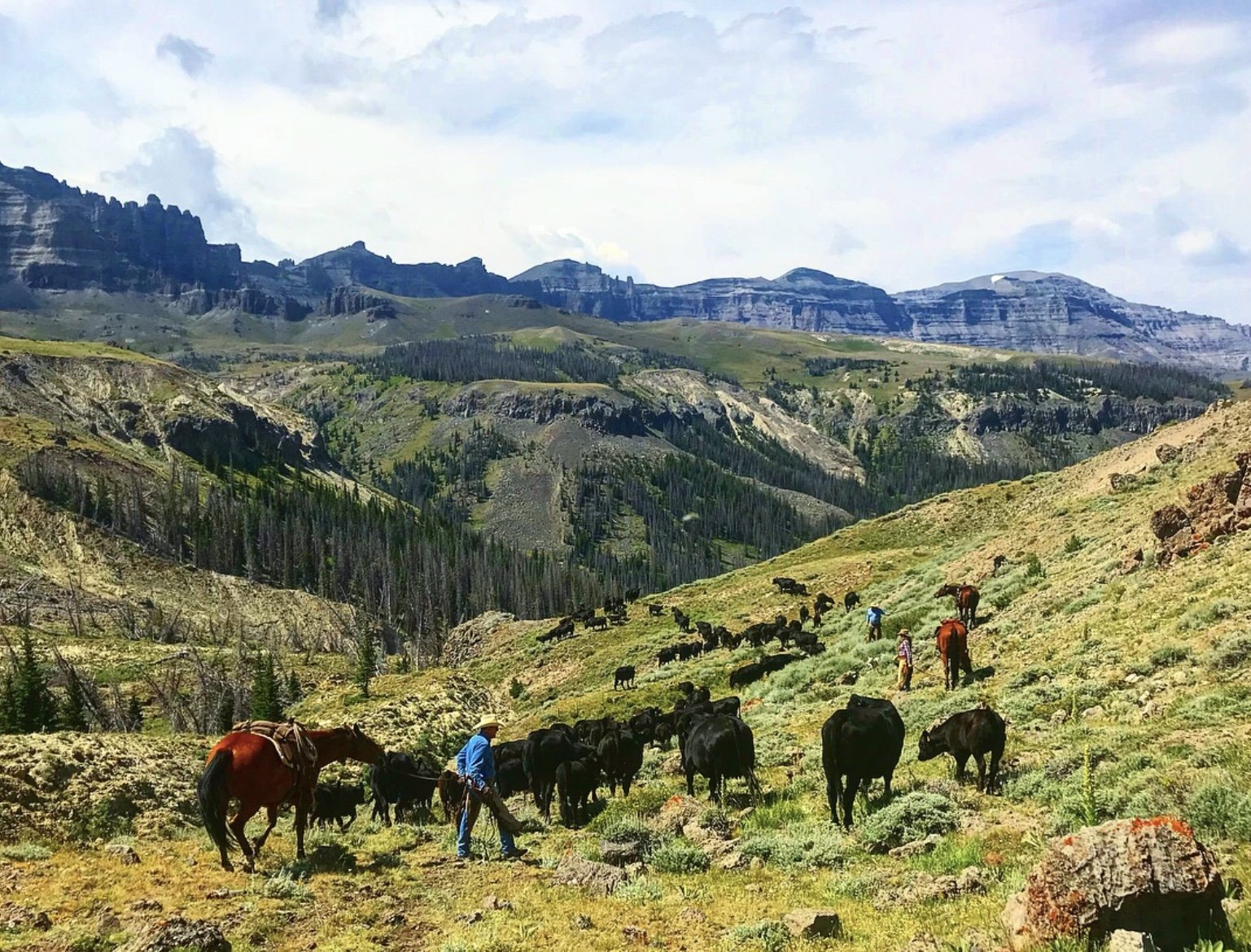
From Tracking Wolves to Building Trust, Learning to Listen One Conversation at a Time
Written by Avery Shawler
July 16th, 2025
On the second day of my first field season, it was -30°F and relentlessly windy. My field crew and I were skiing out to check locations of GPS-collared wolves and it was so cold our eyelashes kept freezing together. There’s something about the kind of work that feels miserable in the moment and fun in retrospect that ignites a particular passion in wildlife researchers.
At the time I thought my graduate research would focus entirely on wolf ecology and investigating their movement and predation patterns,so I was ready to immerse myself in the type II fun of fieldwork. What I hadn’t expected was that some of the most meaningful moments wouldn’t only come from days spent tracking wolves, but also from the people who live alongside them—and the lessons learned in conversations shared at kitchen tables, across tailgates, and riding along to check cows.
Permission, Perspective and Private Lands
Wolves often led us deep into the backcountry of the Absaroka Mountains, but we also tracked them across private lands near Cody and Meeteetse, Wyoming. As a researcher from University of California Berkeley requesting access from ranches to check wolf locations, earning the trust of local producers was essential. Before any fieldwork, my advisor and I spent a year meeting with landowners and agency biologists to make sure everyone was okay with the proposed plans —a process made possible by relationships my advisor had developed from his own research in the area.
The conversations continued after fieldwork began. We held weekly meetings with agency biologists and we’d often stop by to chat with producers while out on their properties. Over time, I realized that while I was collecting data about wolves, another equally important story was playing out, this one from the perspective of the people who live alongside them and who have been dealing with conflict for decades.
Shifting the Research Lens
This realization led me to a simple but important question: had anyone really taken the time to incorporate these landowners' perspectives into scientific research? That curiosity and support from my advisor led me to seek mentors, who helped me dive into qualitative research and add a social science component to my PhD. And so, after three years of fieldwork, I began interviewing producers and wildlife managers about their experiences working with wolves and the challenges of wolf-livestock conflict.
Going into these interviews, I thought I already knew what I would hear based on the academic literature and my past experiences working on a wolf-livestock coexistence project in Idaho. I assumed producers were simply resistant to change and my research questions focused on the factors contributing to unwillingness to adopt nonlethal tools. It didn’t take long for those assumptions to unravel.
What I learned was a far cry from my preconceived thoughts: producers and wildlife managers had experimented with a wide range of adaptations, including nonlethal methods and frequently factor many things into their decision-making besides conflict with wolves, including economic pressures, environmental conditions, land stewardship goals, and daily operational realities that impact every choice they make. It wasn’t that ranchers were unwilling to try new approaches, it was that their adaptations to sharing the landscape with wolves often went unrecognized.
I realized my own experiences helped me relate to people I never expected. I know what it’s like to be mischaracterized. When most people picture a scientist studying wolves in the West, they don’t imagine someone who looks like me. Sitting down with producers who’d been labeled as resistant to change, I recognized that I also knew what it felt like to have people make assumptions without taking the time to understand your experiences and values. While scientists are encouraged to consider how their own positionality influences their research, that realization boosted my motivation to approach every conversation with an open mind. I was ready to really listen to the stories of the people I interviewed. In doing so, another major theme emerged: the importance of trust between agencies and producers for mitigating conflict.
The Importance of Trust
What emerged from those interviews was a more layered story. Physical conflict—wolf depredation on livestock—was just one piece. The deeper, more enduring conflict often stemmed from a loss of control and a sense of unfairness. As the state agency gained local control over wolf management over time, local biologists strengthened their relationships with producers through actions such as stopping by to check in even when there wasn’t active conflict, sharing information on wolf locations, or helping out at brandings. Many producers mentioned that these gestures made a meaningful difference in allowing trust to form and contributed to successful wolf-livestock conflict mitigation in the area.
Through these interviews and my own journey, I began to see parallels: building trust starts with showing up consistently and listening. It’s having the willingness to acknowledge your own mistakes and blindspots, embrace discomfort, and learn from others.
Turning Research into Resources
While I’m still working to publish the findings of my interviews, I knew I wanted to share some of these lessons beyond academia. So when I started at Western Landowners Alliance (WLA) last year, I suggested compiling trust-building recommendations from my research and additional conversations with producers and others with experience managing wildlife conflict on working lands in the West. With the help of WLA’s Working Wild Challenge team, I conducted a survey, facilitated discussions, and interviewed people and then summarized my findings.
The result was a WLA guide for agencies looking to build trust with producers while working on wildlife conflict. It’s not a silver bullet or a checklist that guarantees success. But I hoped it could serve as a starting point—a practical resource for wildlife agencies and others who want to navigate the messy, nuanced work of wildlife conflict.
I also hope this work offers something useful for landowners themselves. Whether it’s seeing their knowledge and experiences reflected in research, or knowing that their perspectives are being shared with a wider audience, my goal is to help elevate stories that often go unrecognized. For those who want to be more involved in research beyond granting access to their land, it can help to ask questions early about project goals and discuss expectations - like how often researchers will check in, whether they’ll share preliminary findings, or how local knowledge can be included. This can help set the stage for a more collaborative partnership. Research that involves people who live and work on the land is not only more respectful, but also more robust.
In many ways, my experiences as both a researcher and an outsider have taught me the same lesson: people want to feel heard. They want to know that their experiences count, that their knowledge matters, and that whoever sits across the table sees them as a whole person—not just a stereotype based on superficial characteristics. I started my PhD research with my own biases shaped by my own experience. However, one of the most rewarding parts of my research journey was learning to set aside those assumptions so that I could not only become a better scientist, but also a person who could meet others with more curiosity, humility, and empathy than I started with. By taking the time to listen to the people who deal with wolf-livestock conflict directly, producers and wildlife managers, I saw the situation in a new light.



About Avery
Avery Shawler (she/her) is an interdisciplinary wildlife ecologist and the Working Wild Challenge Coordinator for Western Landowners Alliance, where she supports collaborative efforts to address wildlife conflict on working lands across the western U.S. Now based in Corvallis, Oregon, she recently relocated from Cody, Wyoming, where she conducted her PhD research through University of California Berkeley. Born and adopted from China and raised in the southeastern U.S. and abroad, she has long been interested in how identity and place shape perspective. Her experiences as both a researcher and an outsider have motivated her to work on bridging gaps between academics and practitioners, natural and social scientists, and urban and rural communities. While the concept of home once felt elusive, she’s now found that home is wherever her partner, two dogs, and community are.
Did you enjoy this piece?
Subscribe to our monthly digest to read more guest writer stories
